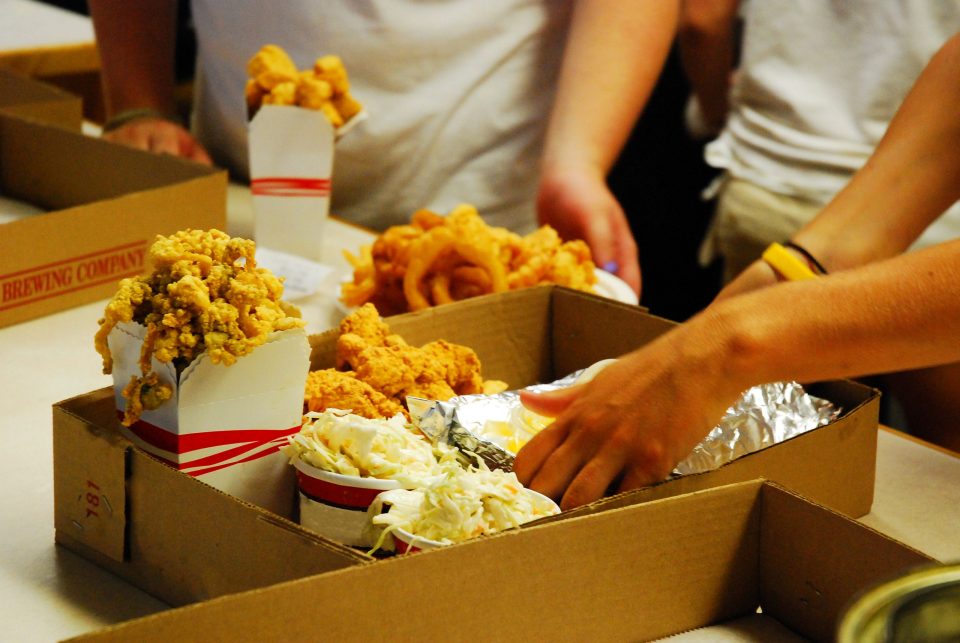California is gearing up to become the first state in the country to unionize fast food employees by creating a new Fast Food Council within the Department of Industrial Relations to set minimum health, safety and employment standards across the California fast food industry, according to the SEIU – even though every business in California operates under health, safety and employment standards set by state and local laws.
To gin up the SEIU’s latest union-member recruitment, fast food workers have been protesting wages, hours and safety at the State Capitol in order to justify unionization under Assembly Bill 257 by Assemblyman Chris Holden (D-Los Angeles).
SEIU even created “Fast Food Justice Hora” which claims “California’s half a million fast food workers faced an industry rife with wage theft, sexual harassment, discrimination, violence in the workplace and health and safety issues.”
AB 257 expands state government by creating the statewide Fast Food Council comprised of the following 10 members appointed by the Governor, Assembly and Senate:
a) One representative from the Department of Industrial Relations. b) Two representatives of fast food restaurant franchisors.
c) Two representatives of fast food restaurant franchisees.d) Two representatives of fast food restaurant employees.
e) Two representatives of advocates for fast food restaurant employees.
f) One representative from the Governor’s Office of Business and Economic Development.
As the Globe reported August 17th, the California Restaurant Association opposes AB 257 because AB 257 “requires fast-food giants to ensure all their restaurants have the necessary resources to operate safely”:
“AB 257 does nothing to help hard-working California families struggling with these costs, in fact it would only serve to hit their wallets even harder. also harms tens of thousands of counter service restaurants. It would impose increased employee costs and onerous new workplace rules at a time when many are still struggling to get back on their feet after the devastating impacts of the government mandated COVID closures. Many restaurants are struggling with labor shortages and increased costs for food and supply chain delays – all while trying desperately to stay afloat. We should be helping this vital sector of our state’s economy keep their doors open, not actively pursuing measures that would kick them closed.”
AB 257 passed the Senate on Wednesday in a 21-12 vote. It heads back to the Assembly for a final vote on amendments before heading to the governor.
The Senate Floor Amendments of 8/25/22:
1) revise the composition, duties and authority of the Fast Food Council; 2) strike the franchisor and franchisee joint and several liability provisions of the bill; 3) limit the Fast Food Council’s authority to set standards, as specified; 4) set a $22 cap on the wages the Council can promulgate, adjusted annually for CPI based on the state’s minimum wage law, as specified; 5) increase the applicability to large fast food establishments of 100 or more; 6) add a January 1, 2029 sunset date on these provisions; and 7) specify annual wage adjustments for fast food restaurant employees after January 1, 2029 if the council is no longer operative.
This is another of the many anti-business bills responsible for chasing businesses out of California.
As the Globe has reported, Tesla founder Elon Musk announced in 2020 he was departing California for Austin Texas, and that 10,000 jobs would go with him.
Hewlett Packard Enterprise announced moved its global headquarters to the Houston, Texas from California.
Oracle announced they already moved their headquarters from Redwood City to Austin, Texas.
Other big businesses already left California: Toyota Motor North America, Kubota Tractor Corp., Hardee’s/Carl’s Jr., Charles Schwab, Jamba Juice.
In April 2022, Chief Executive Magazine issued their Best & Worst States for Business survey of CEOs, and once California came in 50th out of all 50 states. Here’s why, according to Chief Executive:
“States at the bottom of the list continued to suffer from reputations for high taxes, regulation and costs of living, with Washington at No. 46, followed by New Jersey, Illinois, New York and California, all unchanged in their rankings from previous years. Despite some of the nation’s top talent pools and education systems, it will take a true revolution in their tax and regulatory structures to gain ground with CEOs—and move up from the basement.”
Is anyone in the California Legislature listening?



